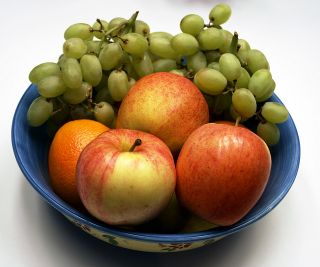Are natural sugars better?
Wellness enthusiasts promote the health benefits of ‘real food’ that is as close to nature as possible. When it comes to added sugars “natural” sugars are seen as healthier than refined cane sugar. Maple syrup and honey are recommended over cane sugar, and fruit syrups are used in order to make ‘no added cane sugar’ claims on foods, but are they better for you than regular cane sugar?
 Maple syrup is the sweet sap from certain varieties of maple tree which is simply heated to remove some moisture. Canada is the maple syrup capital of the world and its indigenous peoples prized its natural sweet hit. Maple syrup is very natural but expensive and has a distinct maple flavour that is not desirable in all cooking applications.
Maple syrup is the sweet sap from certain varieties of maple tree which is simply heated to remove some moisture. Canada is the maple syrup capital of the world and its indigenous peoples prized its natural sweet hit. Maple syrup is very natural but expensive and has a distinct maple flavour that is not desirable in all cooking applications.
Honey is produced by bees after collecting pollen from flowers and was highly sought after by early hunter-gatherers, including the Australian Aboriginals. Honey is composed of a mixture of fructose and glucose with the proportion varying according to the flowers the bees visit, and thus the glycemic index (GI) varies; the higher the fructose level, the lower the GI. Honey – especially strongly flavoured varieties - also contains some antioxidants, however honey is not recommended for infants due to the risk of botulism.
Concentrated fruit syrups are used to sweeten products in food manufacturing and home cooking and have a long history of traditional use in various cuisines including date syrup and pomegranate molasses in the Middle East, and grape syrup in India and ancient Rome. Apple and pear concentrates are commonly used to sweeten food products today and are made by reducing apple juice with heat.
As you can see by the table below, the sugar components in ‘natural sugars’ are the same as those in cane sugar, and the calories (kilojoules) are very similar.
There may be a little more phytochemicals in the darker coloured ones and although these may convey health benefits, the amounts are very small.
Some ‘natural’ sugars are less sweet so you need to add a little more when compared to sucrose. The GI of the sucrose alternative varies widely, although the less refined products – including the low GI sucrose - tend to be lower, however these are usually consumed as an ingredient within the context of a meal or snack and the glycemic response of the whole meal is most important.
The World Health Organisation’s (WHO) Nutrition Guidance Expert Advisory Group (NUGAG) regards all added sugars – natural or otherwise – as equivalent “free sugars”. They say, “Free sugars include monosaccharides and disaccharides added to foods and beverages by the manufacturer, cook or consumer, and sugars naturally present in honey, syrups, fruit juices and fruit juice concentrates”.
While the health impact of natural or refined sugars are very similar, some food manufacturers use misleading claims on packaging such as ‘no added cane sugar’ or ‘no added fructose’ to suggest their product is better. From an energy content perspective, they probably aren’t. The FSANZ Food Standards Code requires food labelled “low sugar” must not contain more than 5g sugars per 100g for solid food or 2.5g per 100ml liquid, and food labelled as “no added sugar” cannot contain any added sugars or fruit or juice concentrates.
Whether added sugars are more ‘natural’ or refined, they’re still sugars and have a similar nutrition and health impact.
Nutritional Comparison of different sugars
| Sugar | Source | Main components | Glycemic Index | Kilojules (calories) per teaspoon (5ml/4g) | Sweetness compared to sucrose |
| Sucrose | Sugar cane | Glucose, fructose | 65 | 67 (16) | Standard |
| LoGIcane | Sugar cane, less refined & higher antioxidants and minerals | Glucose, fructose | 50 | 67 (16) | Same |
| Maple syrup | Maple tree | Sucrose, glucose, fructose | 54 | 67 (16) | 90% |
| Honey | Flower pollen | Fructose, glucose, sucrose | 32-87 | 80 (23) | Same to 50% sweeter |
| Date syrup | Dates | Glucose, fructose, sucrose | Not tested but dates are 39-45 | 67 (16) | Less sweet |
| Grape Syrup | Grape juice | Glucose, fructose | Not tested but Grape nectar is 52 | 67 (16) | 10% sweeter |
| Pomegranate molasses | Pomegranate | Glucose and fructose | Not tested but juice is 53 | 42 (10) | Much less |
| Apple syrup* | Apple | Fructose, sucrose and Glucose | Not tested but juice is 37-44 | 80 (19) | Less |
Table modified from data in The Ultimate Guide to Sugars and Sweeteners and used with permission.
*Apple syrup is Freshfields brand
